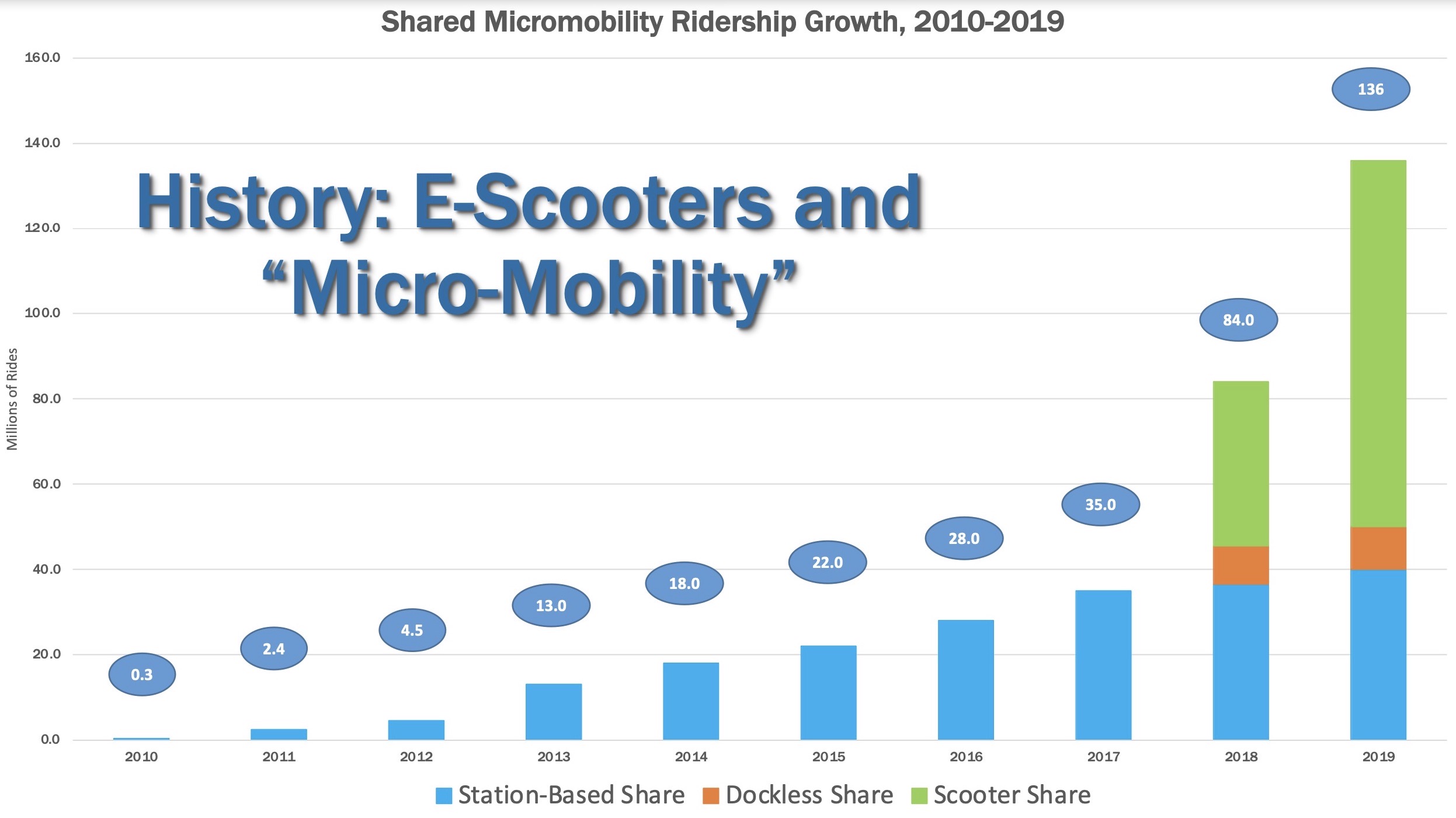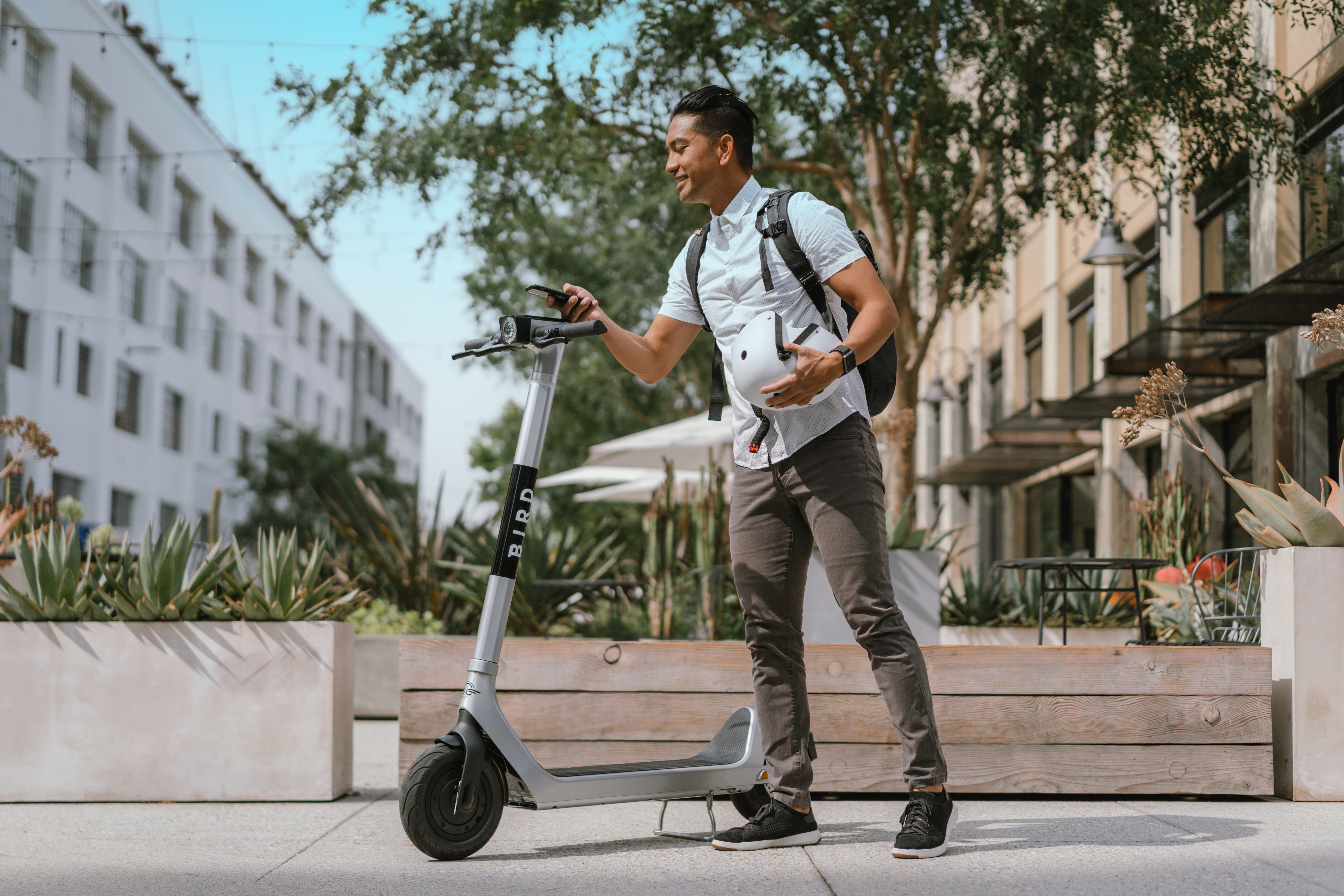You may soon find fellow drivers taking a different motorized vehicle on their commute in Springfield.
Springfield City Council met in late May to discuss changes to a local bill that would introduce rentable e-scooters and e-bikes to Queen City.
Following the initial proposal in February, changes were made and presented to the council Tuesday night for Council Bill 2022-143.
E-scooters and bikes, jointly categorized as micro-mobility devices, are a recognizable eyesore and nuisance to some, and a fun and convenient form of transportation to others across many U.S. cities.
Until the onset of the COVID-19 pandemic, the deployment of rentable e-scooters saw exponential growth in the United States, according to data from the U.S. Department of Transportation. Despite a contraction in 2020, due to governments and micro-mobility companies restricting their devices’ uses to prevent the spread of the coronavirus, 2021 put the industry back in the growth category.

Thus far, Springfield has been spared from the sometimes complicated and controversial implementation of these micro-mobility companies. Some of these corporations set up shop in cities without any prior planning or coordination to develop policies with the city, according to an article by the School of Engineering at the University of Minho in Lisbon.
Additional challenges cities face in their relationship with these micro-mobility companies is how to enforce consumers to follow regulations. These can range from riding on roads versus sidewalks, wearing a helmet and parking the device at proper or designated locations, according to a report by the National League of Cities.
Council Bill 2022-143, sponsored by four council members and submitted by Assistant Director of Public Works Mark Gugel, would lay the groundwork for allowing a micro-mobility company to be allowed to operate in the city. It would require an amendment to the Springfield City Code, ‘Streets, Sidewalks, and Public Places.’
City officials established ‘Core Team’ to see if micro-mobility could work in Springfield

In 2021, Springfield established a Core Team of representatives from Missouri State University and various city departments. The Core Team sought community feedback regarding the prospect of introducing micro-mobility devices to Springfield streets and information about how other municipalities handled their launch.
A presentation by the city in February of this year revealed the findings of the Core Team that helped frame the components of Council Bill 143. Major changes to the City Code include adding a definition for micro-mobility devices, allowing the City Traffic Engineer to create rules and regulations similarly applicable to other motorized vehicles, and permitting participating companies to operate under the same protocol as Bike-Share.
A member of the Core Team, Jen Cox, the university space manager and director of support services at MSU, is a proponent for the launch of micro-mobility devices in Springfield.
“It’s an amenity that our students would like to have,” Cox said. “I think it will help them to get around campus efficiently; potentially make what might be a late-night study session at the library safer to get back to the fraternity or sorority.”
Despite the benefits e-scooters could bring to the community, the Core Team is transparent about the challenges to come with it. While establishing restrictions on the devices’ operation are necessary to prevent dangerous situations and public nuisances, overregulation is not advantageous for anyone, according to Cox and the Core Team.
“Some of the things that we’re looking at on campus is geofencing — where you can only ride them in certain locations,” Cox said. “We also are looking at having specific locations where they can be parked. Obviously safety of pedestrians and also the people on the scooters are of utmost importance and so we’re working with the city and with successful vendors on logistics and parameters for safety with the geofencing and thresholds for speed. All of those things we can do to make sure it’s operating in the safest way possible, it’s just for the betterment of our community and our student body.”
Brett Foster, the principal engineer with the city, spoke at the Springfield City Council meeting on May 31 regarding their concerns, and the additions made to the proposed code changes. Coinciding with the findings by the Core Team, Foster said they believe the changes fulfill what was suggested.
“Public Works and members of the Core Team are excited to bring this to you,” Foster said. “We feel like e-scooters can work in Springfield. Obviously there will be some growing pains and flexibility that we’ll need as we administer those because we do not have all the answers considering the newness of this technology and how fluid the industry is.”
The bill, which would allow micro-mobility companies to set up shop in Springfield, with contingencies, will face a vote by City Council on June 13.

